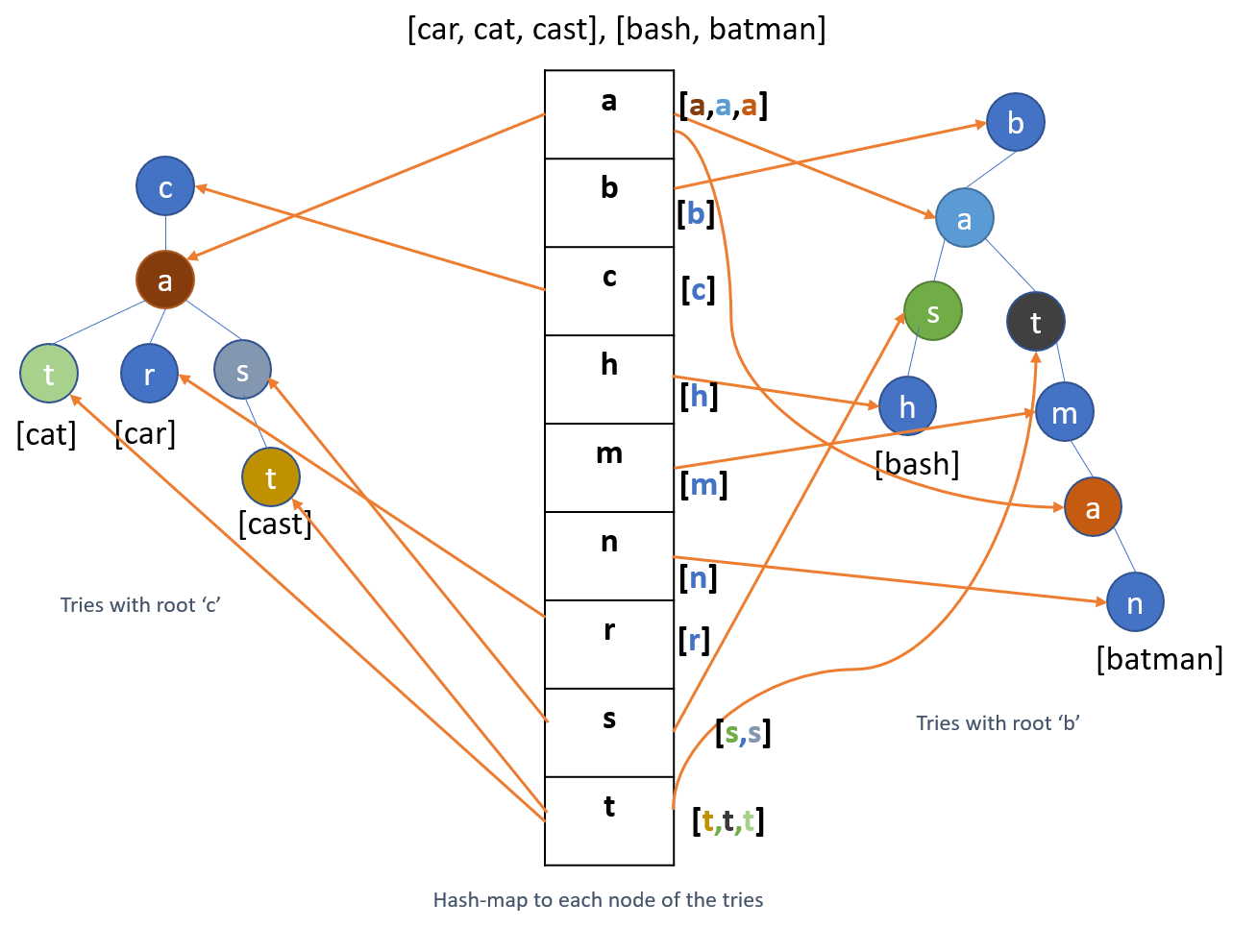
Security News
npm Adopts OIDC for Trusted Publishing in CI/CD Workflows
npm now supports Trusted Publishing with OIDC, enabling secure package publishing directly from CI/CD workflows without relying on long-lived tokens.
Hashed Trie data structure for faster memory efficient and fast keyword indexing and lookup
Hash trie is an enhanced Trie data structure stores keyword indexes for faster keyword lookup. The storage is done in such a way that it does efficient memory usage and faster lookup.
from pyhtrie.htrie import Trie
trie = Trie()
Syntax : trie.index_text(
data,keyword_to_index)
data: Data can be any data to indexkeyword_to_index: Keyword associated with thedataindexed
trie.index_text('car','car')
trie.index_text('cat','cat')
trie.index_text('cast','cast')
trie.index_text('Batman', 'batman')
trie.index_text('Bash', 'bash')
Syntax : trie.prefix_match(
prefix_text_to_search)
The function returns all data matching the prefix text
prefix_text_to_search: Will be the prefix text on which the search will be performed. If there are no nodes matching the route of the prefix text then it will return an empty array
trie.prefix_match('ca')
Syntax : trie.pattern_match(
pattern_text_to_search)
This function returns all data associated with the text pattern. When compared to the prefix_match function, this function need not necessarily require the pattern_text_to_search to match with the prefix of the keyword to be searched for. The pattern_text_to_search can appear anywhere within the keyword
pattern_text_to_search: Is the text pattern to be searched.
trie.pattern_match('at')
The keywords to be indexed are stored in a Trie data structure as can be seen in the image below. However for faster indexing of pattern match within keywords, each node in the trie is added to the hash-map with the letter corresponding to the node being the key.

So if you need to search for any words beginning with 'ca', then prefix_match('ca') will return [cat, car, cast] as in a regular trie. However, if you want to search for any words with 'at' in them, you can use the function pattern_match('as') that will return [cat, batman]. The prefix match is done with the help of the hash-map. When a prefix match of 'at' is done, the hash-map is checked for the letter 'a' in 'at'. This returns a list of three a nodes [a,a,a] each pointing to a correspinding 'a' node in the tries as shown in the figure above. Then each of them are traversed to see which of them have the next node as 't' of 'at'. The result will be the 't' of 'cat' and the 't' preceding 'm' in 'batman'. Then the algorithm performs a collection operation from each of these 't's returned to retrieve keywords stored under those t's. The result, as can be inferred from the figure above, will be [cat, batman]
FAQs
Hashed Trie data structure for faster memory efficient and fast keyword indexing and lookup
We found that pyhtrie demonstrated a healthy version release cadence and project activity because the last version was released less than a year ago. It has 1 open source maintainer collaborating on the project.
Did you know?

Socket for GitHub automatically highlights issues in each pull request and monitors the health of all your open source dependencies. Discover the contents of your packages and block harmful activity before you install or update your dependencies.

Security News
npm now supports Trusted Publishing with OIDC, enabling secure package publishing directly from CI/CD workflows without relying on long-lived tokens.

Research
/Security News
A RubyGems malware campaign used 60 malicious packages posing as automation tools to steal credentials from social media and marketing tool users.

Security News
The CNA Scorecard ranks CVE issuers by data completeness, revealing major gaps in patch info and software identifiers across thousands of vulnerabilities.